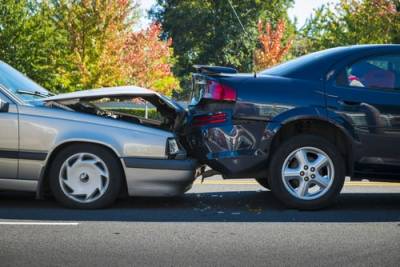How Much Compensation Can I Receive for a Rear-End Accident?
 There are many different types of car accidents that can result in serious injuries and significant property damage. Rear-end collisions are some of the most common types of accidents, and they often occur at intersections, on roads where vehicles slow down to make turns, and in situations where drivers are unable to slow down or stop in time due to distracted driving or traffic violations such as speeding. Even though a rear-end accident may seem to be relatively minor, victims may experience multiple types of injuries, as well as other damages. To ensure that they will be able to address their financial losses and other ways they have been affected by a collision, victims can work with an attorney to determine the amount of compensation they may be able to receive.
There are many different types of car accidents that can result in serious injuries and significant property damage. Rear-end collisions are some of the most common types of accidents, and they often occur at intersections, on roads where vehicles slow down to make turns, and in situations where drivers are unable to slow down or stop in time due to distracted driving or traffic violations such as speeding. Even though a rear-end accident may seem to be relatively minor, victims may experience multiple types of injuries, as well as other damages. To ensure that they will be able to address their financial losses and other ways they have been affected by a collision, victims can work with an attorney to determine the amount of compensation they may be able to receive.
Damages in Rear-End Collisions
To assess the value of their case, a car accident victim will need to consider multiple factors. The person who was responsible for the collision may be held liable for all of the economic and non-economic damages that they caused. These damages may include:
- Medical expenses - Depending on the extent of a person’s injuries, the costs of medical treatment can be significant. In many rear-end collisions, victims will suffer whiplash, which can result in ongoing neck pain and stiffness and loss of range of motion in the neck, shoulders, and arms. To treat these issues, a person may require ongoing physical therapy, or they may receive chiropractic treatment. The costs of these treatments can add up to tens of thousands of dollars. In more serious cases, such as when a collision results in spine injuries such as fractured vertebrae or herniated discs, a person may require surgery, which can cost tens or hundreds of thousands of dollars.
- Lost income - An inability to work while recovering from the injuries suffered in a car accident may lead to a significant loss of income. Depending on the income a person earns, the length of time when they were unable to work, and whether they were able to return to part-time or full-time employment, their losses may add up to thousands of dollars. If an injury results in a permanent disability, this may affect a person’s ability to earn an income and support themselves and their family throughout the rest of their lifetime. In these cases, damages may address the loss of future income, which can add up to hundreds of thousands of dollars over multiple decades.
- Property damage - A person should be able to cover expenses related to repairs for a vehicle that was damaged in a collision. These repairs may cost several thousand dollars, and in some cases, damage may be so extensive that a vehicle may need to be replaced, which can cost tens of thousands of dollars. Damages may also address the costs of replacing other property that was damaged or destroyed, such as valuables in a vehicle’s trunk that were damaged by the impact from another vehicle.
- Pain and suffering - In some cases, a victim may experience damages that are not easily quantifiable, such as physical pain or emotional trauma that has affected their quality of life. When determining the amount of compensation a person should receive for these damages, the ways they and their family have been affected will be considered. Non-economic damages may be calculated by using a multiplier that is applied to the amount of a person’s economic damages.
Contact Our Decatur Rear-End Accident Attorneys
Following a rear-end collision, the attorneys of Kanoski Bresney can gather evidence to demonstrate fault and document the full extent of a victim’s damages. We will work to ensure that a victim fully understands the value of their case, the forms of compensation they can receive, and the steps they can take to address their ongoing needs. Contact our Bloomington rear-end-collision lawyers today at 888-826-8682 for a free consultation.
Source:
https://www.ilga.gov/legislation/ilcs/ilcs4.asp?DocName=062500050HCh%2E+11+Art%2E+IV&ActID=1815&ChapterID=49&SeqStart=119000000&SeqEnd=120700000









